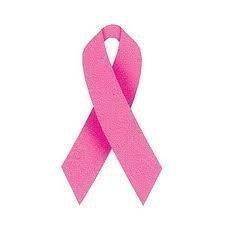In October, during National Breast Cancer Awareness Month, we remember those who have lost their lives to breast cancer, and those who are battling it now, by recommitting ourselves to their fight and spreading the word of the importance of prevention and early detection.
Despite significant advances in treatment and prevention, breast cancer remains the second leading cause of cancer death for women in the United States. However, because of the Affordable Care Act, it’s a new day for women’s health and the fight against breast cancer.
We know that the chance of successful treatment is highest when breast cancer is detected early. While not a perfect tool, mammogram screenings are key to early detection. But budgets are tight, and even moderate copays can deter many women from getting those important screenings.
Because of the Affordable Care Act – the health care law signed by President Obama two years ago – many private health plans and Medicare now cover mammograms and certain other preventive services with no copays or other out-of-pocket costs. This means that women can get the potentially life-saving services they need to detect breast cancer before it spreads, without worrying how a copay would affect their family budget. Last year, more than 6 million women with Medicare got a free mammogram.
Under the health care law, other services to help prevent breast cancer are also covered, such as a well-woman visit – at no additional cost– so women have the opportunity to talk to their doctor about their health care needs, their personal risk for breast cancer, and their best options to reduce their risk. The Affordable Care Act gives women, not insurance companies or the government, control over their health care.
Women also have new rights and protections under the law against insurance company abuse. If diagnosed with breast cancer or another illness, women cannot have their coverage taken away when they need it the most simply because of a mistake made on paperwork. And beginning in 2014, it will be illegal for insurers to discriminate against anyone with a pre-existing condition, such as breast cancer.
The health reform law is also helping women who are going through costly breast cancer treatment by preventing insurance companies from imposing lifetime dollar caps on coverage. This means that women fighting breast cancer can focus on their health, their families, and living their lives, and not worrying that their insurance will run out while they still need treatment.
We have made substantial progress in reducing the burden and toll of breast cancer on American women and their families. Initiatives under the Affordable Care Act, along with ongoing research, are making real differences in the lives of American women and their families.
В

